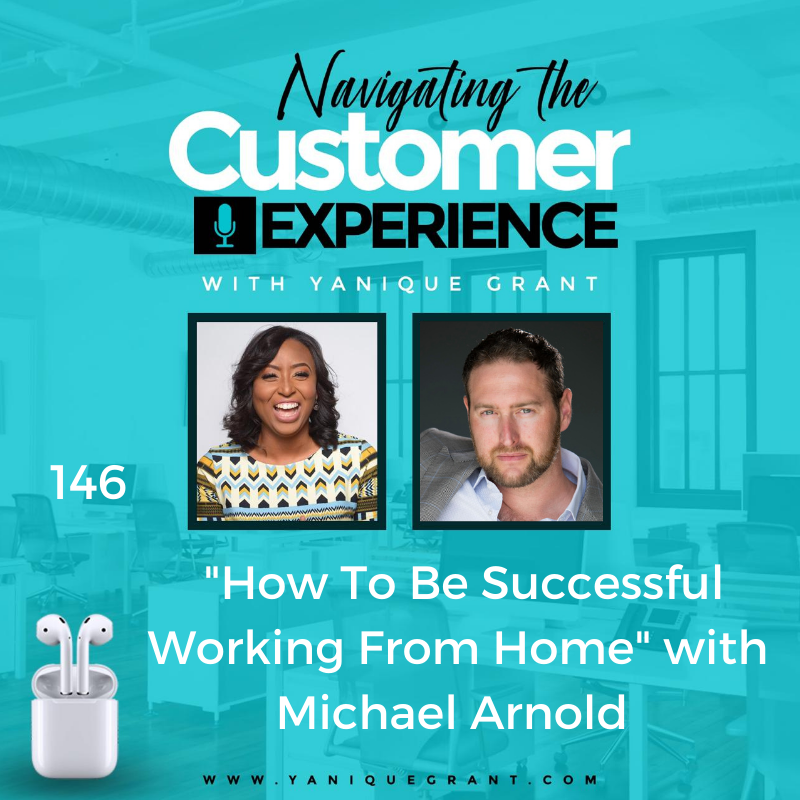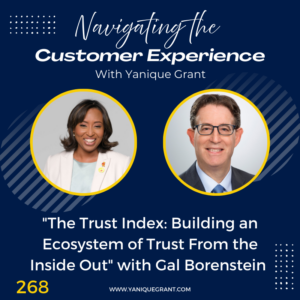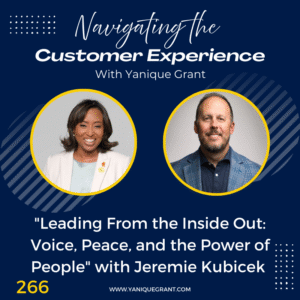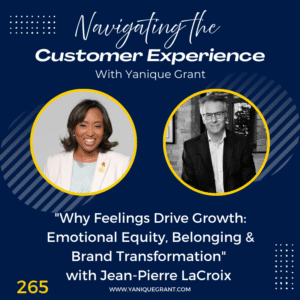Michael Arnold is the author of the book, Slacking Off: A Successful Way to Work from Home and he wrote it especially for those who are considering to work or are working from home and are seeking a work life balance.
He has been a work from home entrepreneur for over 15 years and he’s worked with major corporations such as Cox Automotive, Verizon Super Pages, and Major Commercial Finance companies. His journey wasn’t a smooth sailing one since he is also human just like us and he made many mistakes along the way. But he has lived to share some wisdom from his own experience to help people on their work from home journey to create successful actions on their own.
Questions
- Can you share a little bit about your journey?
- In your book Slacking Off a successful way to work from home. Could you share with us maybe in five to eight or nine minutes, just what the book is about? Who is it targeted for? And how can it help our listeners.
- Could you share with our listeners since you have so much experience working from home, this was quite new for many people last year March when the pandemic just hit. Could you share with maybe our listeners maybe 1 to3 things, competencies or behaviors that you think someone who is working from home needs to embrace in order to be successful?
- Have you seen customer experience change much since the pandemic as a consumer or even as a business owner?
- How do you stay motivated every day?
- Could you also share with us what’s the one online resource, tool, website or app that you absolutely cannot live without in your business?
- Could you also share with our listeners maybe one or two books that have had the biggest impact on you? It could be a book that you read recently, or a book that you read a very long time ago, but it still has had a great impact on you.
- Could you share with our audience, what’s the one thing that’s going on in your life right now that you’re really excited about – either something that you’re working on to develop yourself or your people?
- Where can listeners find you online?
- Do you have a quote or saying that during times of adversity or challenge, you’ll tend to revert to this quote, it kind of helps to refocus you or get you back on track.
Highlights
Michael’s Journey
Me: Even though we read a little bio about our guests, we always like to give them the opportunity to kind of just share with us a little bit about their journey. How is it in your own words would you describe how you got from where you are now to where you were before? How did you get to where you are today?
Michael shared that a lot of ups and downs and experimenting in different industries led him to be a work from home entrepreneur and a father and let’s say, contributor to the community. And he thinks ultimately, like most of us, he started out trying to be everything he could be at a young age before he was 18.
Work normal jobs like McDonald’s, Christmas tree lots, doing landscaping and lots of different things at a very, very young age. And still was looking to find what he enjoyed and that became understanding businesses really fast and sharing, whether it be speaking, or presenting or consulting and he thinks ultimately, when we learn from our mistakes, and we’re better people for it, and we’ve survived the misses, the bullets that fly our way, metaphorically and can live to tell about it, he thinks that’s essentially what’s brought him here, is his ability to survive through all things or persevere, if you will.
Slacking Off: A Successful Way to Work From Home What is it About and Who is it Targeted for?
Me: So, in your bio, we read that you wrote a book and we were having a brief discussion about this prior to actually starting the recording. And so, for those of our listeners that didn’t catch the name of that book, it’s Slacking Off: A Successful Way to Work from Home. So, could you share with us maybe in five to eight or nine minutes, just what the book is about? Who is it targeted for? And how can it help our listeners.
Michael shared that he wrote this book because he’s been working from home for 15 years, and he’s worked for himself, he’s worked for other companies, major corporations, very large corporations that have 1000s and 1000s of employees. And he’s been mostly in either a sales role or a strategy role or a management role and what he found over the years is that basically people around him, including himself were struggling a lot with work life balance and usually the really successful guy or gal that’s really good at work is missing out at home and very rarely are they balancing between the two and it doesn’t necessarily mean these people don’t exist, but it’s just rare.
And a lot of times people who are putting themselves into work obsessively are successful, but again, not happy. And so, he created this book to help people who want to actually take that obsession which is amazing, it’s not a bad thing; it’s a great thing when you’re doing it in the right ways.
And just get a little more time for themselves and help them invest more in themselves, whether that’s with time and effort or even money.
Of course, if they find something that’s good for them, because themselves, actually they are the most valuable product that exists, you can buy a car, you could buy a house, you can buy nice clothes, you can have all these things. But unless you’re investing in yourself, it really isn’t going to pay off as big as it would be if you did invest in yourself because that’s what ultimately this book is to help you invest more time, effort into yourself and do it in a way that’s unique. Pun intended.
Competencies or Behaviours Needed to Be Successful When Working from Home
Michael shared that he’s using his book as the foundation here for this question because this is exactly how he set this book up was exactly the things you need to know and the things that you should have in place when you work from home, whether you’re experienced or not. And that is one; you should recognize what you do when you’re not working.
It sounds so obvious, most people are like, “Yeah, of course, I know when I’m not working.” But do you really because what he found over the years is that even for himself, which he uses himself as the example here is that sometimes what he actually considers not working for himself is different from what he considers not working for somebody else.
And he’ll just very lightly explain a little more in that so there’s no confusion there, nebulousness. Basically, what he would look at you and say, you’re working when you’re doing this and not working when you’re on Facebook or Twitter or whatever, versus him might be different.
He might judge himself less than he judges, or more or less than he judges you.
And so, what he did is he put himself up on the microscope and said how much scrutiny, all unbiasness, just straightforward, looking at himself, what’s actually working, and what’s not considered working.
Is being on Facebook for 5 minutes a problem, probably not that big of a deal in the middle of a work day.
But it’s not technically working and it doesn’t matter that your boss or your company or yourself, it doesn’t matter what your employer says, what matters is actually how you feel and usually when people aren’t doing a task as they are paid to do, eventually they start to, let’s just say, have more problems, it starts very small.
So, ultimately, everybody starts off with what’s called a slacking off day, which is you take one day and you just slack off, you actually avoid work the entire day, on purpose, and you just slack off, that’s it.
And so, the only caveat or disclaimer to that entire thing is that you write down what you do, if it’s reading a magazine, reading a book, on Facebook, watching TV, exercising, whatever it is you do to slack off, it’s important to recognize that first and foremost, before you do anything.
Then you carry that into your work day and you have that list, whether it’s digital or on paper in front of you to actually help you recognize when you’re actually starting to slack off so that you (a) recognize that the next chapter of what you need to do, which is start to actually make time for yourself to slack off.
Why is it that some of us slack off? There’s probably hundreds of reasons.
But he thinks fundamentally what the purpose and confidence that you need, or the let’s just say consistency you need to have is being able to move throughout your day, and do it in a way that you’re happy with. Do it in a way that keeps you going and if you have time to slack off in the morning or in the evening, or whenever, you’ll probably slack off less during the times that you probably shouldn’t be.
And so, ultimately you want to make sure that you recognize for yourself and keep yourself accountable because it doesn’t matter if your boss is mean or not, doesn’t matter if you’re being watched or not, you’re in an office or you’re not in an office, the end of the day, the only person that judges you, is you and God. So, at the end of the day, you need to be right with yourself and God more than you need to be right with other people.
And of course, you should be respectful and ethical but that’s kind of the gist, that’s just a little piece. There’s obviously a lot more but that should answer the question.
Changes in Customer Experience Since the Pandemic
Me: Could you also share with us as an entrepreneur yourself, there’s a lot of things that have changed since the pandemic and you are a consumer yourself, you mentioned before we started recording that you were in an Uber for the first time in over a year. Have you seen customer experience change much since the pandemic as a consumer or even as a business owner?
Michael stated of course, it’s consistently changing and something he wanted to say early on was that forgive him for not coming out with this book before the pandemic, because he started writing in 2019. But he thinks ultimately, it’s a dream for most people to work from home, so, the fact that the businesses that are existing now are tailoring work from home experience and making it easier, it actually pushed a lot of people on the fence of making their employees work from home, making their businesses more work from home friendly, making their products more work from home friendly, and all the technology that comes with it.
There’s a lot of reasons why working from home is beneficial and there’s a lot of reasons why in certain jobs, they’re not. But ultimately what we’re finding, and please chime in here if you have something to say about it. But is that it’s actually not as hard to work from home for a lot of these businesses, or even these services to provide work from home experiences as we thought.
Look at the weather channel people who are giving you the weather forecast from their home office, it’s not that hard.
Me: I agree with you. But I think as you said, a lot of people were forced to embrace the whole work from home as the pandemic came, they were forced into it, if it was a choice that they had to make, and things were operating normal and we weren’t going through a pandemic, I highly doubt that many companies would have even thought of implementing it.
I’ve met with many business owners, or even senior managers who when they look at their balance sheets, in terms of so much savings that they’ve made as an organization, productivity has actually improved with employees working from home. Of course, with everything there are advantages and disadvantages, because I’m sure there are some other things that may still suffer as a result. But it still doesn’t mean that there are a lot of industries where people were working, that they couldn’t have worked from home and been productive and created the same or even better results.
Michael shared that there are a couple reasons for him, but he’s curious, what’s Yanique’s thought about why somebody who’s working from home is producing more than somebody who’s in the office?
Me: Well, I worked from home before the pandemic, so I’m not even sure if I could compare myself. But if I use persons who I know personally, I have a friend that works in an insurance company, he works in the pensions department and one of the things he said to me why he feels he’s more productive is he works many times way past 5:00 pm, because I guess when you’re at work, when it’s 5:00 pm, you get up, you pack up your stuff, and you head home, but because he’s home, he just keeps working and sometimes he works until 9:00 pm – 10:00 pm, it’s when he looks at the clock, he’s like, “Oh, my I’m still working, it’s time to shut the computer down and just kind of unwind.” So, I don’t know if other people fall into that category but that was his experience. And I was like that wouldn’t have happened if you were working in the office unless you were working on some special projects and it was required for you to stay back late. Ordinarily, people would just leave at the time that work ends and they go home.
Michael agreed and stated that that is exactly what occurs, we’re our own worst critic and we’re our biggest driver. So, it’s like we’re not only our own worst critic, but we’re also our own motivator, that kind of leads into to what he was saying earlier, it’s like that’s exactly why he wrote this.
He wrote this for Yanique’s friend, he wrote this for him, because and of course, anybody else who is like so happy about working from home that they’re starting to form these habits that they’re not paying attention to of overworking to the point where eventually, it doesn’t actually produce much.
Now, he wants to say something, he’s very much for somebody putting everything they got into something and he definitely don’t advocate people being lazy. The point of the book being slacking off is actually to appeal to the person who is struggling because maybe they’re slacking off too much or maybe because you want more time to yourself, but ultimately recognizing that it’s okay to work 12 hours and 15 hours a day, it’s actually not a problem.
He’s doing business 7 days a week and he still always use his own book as a tool and a roadmap for himself to make sure he maintains a work life balance. But ultimately, you just you want to make sure you’re taking care of yourself and you want to make sure that you sustain properly, because at the end of the day, you cannot not invest in yourself whatever it’s nutrition or exercise or reading.
There are 60 books a year are some of the top CEOs in the world, 60 books a year is what they read while managing their own work and life, and he’s sure they have their ways of doing it.
But ultimately, a year after doing that, working 9 hours a day until 10, o’clock at night, or whatever, eventually it becomes “Either I’m doing it because I’m great. Or I’m doing it for different reasons, or whatever.”
But as long as they don’t have built in time for themselves, eventually, they’re slaving away to a job and doing way more, and getting paid hourly, that’s great. But it’s like it may not be worth it.
He knows people, they get paid $1,000 to $2,000 an hour, and they work nonstop but they spend time with their family, they spend time for themselves and everybody’s happy, or at least happy enough. And so, there’s a difference.
So, that’s really ultimately he thinks what’s happening too which Yanique totally hit the nail on the head, what occurs we overwork ourselves, because we’re like, that’s what employers who are experienced in working from home, having worked from home people, that’s what they know, they know that ultimately, you may get a lazy guy who will manipulate people or gal who manipulate people and you work very little but you’ll get in majority people who will overwork.
How Michael Stays Motivated Every Day
Me: Could you share with our guests; how do you stay motivated every day? You work from home, what are some of the things that you do to kind of motivate yourself? Because the reality is we’re human and even if you really enjoy what you do, which I do, personally. And so, there are days when physically, I may not feel as enthusiastic but there are little things that I’ll do like maybe exercise or listen to some music to kind of just get my mood or energy up, what are some of the things that you do to kind of keep yourself motivated?
When asked about how he stays motivated, Michael shared that another part of his book is on this, he totally understands, some days you are less motivated than others. There’s actually a lot of reasons for that. What he personally do is, he raises his purpose, if he’s feeling less motivated today for whatever reason, he increases his purpose. So, if his purpose and this is another chapter in his book is to have you look at the reasons you’re doing what you’re doing…
Why do you work?
“It may be paying my bills?”
Don’t be general, let’s be specific.
Why do you do it?
“I do it to pay for this, I do it to pay for that. I want to go on vacation. I want to do this, I want to have that. Oh, wow, I didn’t realize I expect to have a raise in the next year, or whatever it is.”
But your purposes are what drive you and we forget about those purposes if we’ve been doing things for a very long time, unless we’re so successful that we’re building new purposes.
But a barrier, whether it’s personal or outside of yourself is something that is raised up in front of you, it’s anything, it’s unmotivated, it’s problems, it’s lack of winning, whatever it is. He just increases his purpose.
He says something’s holding me back. Listen, he’s facing something right now that’s stopping him or attempting to stop him from doing things. He won’t necessarily get into details, but he’ll just say, every day he’ll reach a point where it’s definitely a little bit frustrating because he wants to go do one thing and he’s got all these other things trying to get in his way.
And all he remembers and know is that as a being, nothing stops him ever. The only thing that actually stops him is him, that’s it.
There’s no one and nothing that’s ever truly ever stopped him from doing or getting what he wants ever.
But as a being, what you’re talking about is motivation that does stop you.
So, just remembering like, if you can’t figure out your reasons for why you’re doing what you’re doing, or you can’t increase, add more reasons, add more things if you’re unmotivated, that’s what he does, he adds more things.
And he says, “Okay, I want all these things and that’s why I do what I do. I now want double that, triple that.”
And he adds, he adds and he adds and he adds, give him more reasons why you do what you do. If you’re unmotivated, add more reasons why you want to do more, you want more, you build more, not less.
A lot of people have a tendency to get lazy and downtrodden when they’re not getting what they want himself included, and you just have to remind yourself, you’re a producer and producing is what makes us happy when we’re moving and shaking no matter what that is we’re doing. So, increase your purposes is the simple answer.
App, Website or Tool that Michael Absolutely Can’t Live Without in His Business
When asked about online resource that he cannot live without in his business, Michael stated that he’d say just honestly, the calendar, Google Calendar, Apple. He uses the calendar a lot, he thinks if he didn’t use it digitally, he would use a planner.
He thinks back in the old days, people used to use the book planners is just what they were with little calendars on them and that’s how they wrote their appointments, and they look at their schedule.
Whether you’re drawing it on a piece of paper, or you have it digitally, those calendars are everything. At the end of the day, time is all we got, that’s really what we have, and we’re either selling our time, or we’re buying it. So, that should be the first thing that you teach your kid is about how to manage their time, that should be the number one thing other than obviously, how to survive of course.
But time is important, calendars are important for you, they are tools for you to use. He also wrote this book for the person that was like him, who, for years, refused to use a calendar, because he didn’t want to be predictable, he did not want to be predictable for himself or anything.
He likes the adventure of spontaneous movement and things. He was that guy that would just barely make it to the deadline, but he wasn’t ever late, he would just barely make it to the appointment, wasn’t really late and he liked that and he could manage it very well. And he became very good at shooting from the hip and winning but when he actually started doing things on a calendar, goodness, then he was dangerous.
Books That Have Had the Greatest Impact on Michael
When asked about books that have had the biggest impact, Michael shared that there’s a couple of books one he would say, Never Split the Difference: Negotiating As If Your Life Depended On It by Chris Voss, that’s a great book on negotiating. He’ll share 3. The 10X Rule: The Only Difference Between Success and Failure by Grant Cardone. The 10X Rule, he was very surprised how good that was, he’s a great guy (Grant Cardone), everything he stands for has been tremendous. And then there’s another one called The Reluctant Messiah, which has been a really interesting book, it’s more of a kind of a fictional. It’s called the Illusions: The Adventures of a Reluctant Messiah by Richard Bach. It’s kind of a book that takes you on this journey of a guy trying to coach another guy to help him through his life and it’s just very metaphorical. But man, is it huge, it’s such a great book. And he’s not a big fiction guy, so when he looked at it, he was like, he read it, but it blew his mind. It was very, very cool.
What Michael is Really Excited About Now!
Michael shared that he’s really excited about Slacking Off, he’s excited about the book. Excited about getting this out to as many people right now during their work from home all over the world.
He created this book because he saw so many people having problems and becoming unhappy in their life and he created this to help those people, whether they looked at one chapter or all of them, it’s a very simple, easy book, you can read it in like an hour and a half it’s very, very simple, but it’s full of stuff.
Other than that, he works currently in a medical technology field where he’s trying to help a company name ROM Technology, essentially just develop business with them and help them grow as a company and continue to just progress, he supports them through a lot of different efforts. But it’s mostly focused to help people get better after surgery and rehab, their legs or knees or hips, so they don’t necessarily have to leave their house to do a certain amount of rehabilitation.
It also helps lower narcotic usage so that we have less people taking pain pills, it gets them better faster. So, a lot of time is dedicated to that too and he’s very excited about it because it helps people and It costs less money and it drives down their narcotic usage, which he’s not a fan of people taking pain pills unless it’s absolutely necessary. So, it’s a really, really great product and great company and they have such a great team and there are so many people supporting, so many doctors of specialties that doesn’t even have anything to do with rehab, love it, and are supporting it. And he’s been spending a lot of time trying to help them grow and do everything he can to play his part for sure.
Where Can We Find Michael Online
Facebook – SlackingOff
Twitter – @SlackingOffBook
Instagram – @slackingoffbook
Quote or Saying that During Times of Adversity Michael Uses
When asked about quote or saying that he tends to revert to, Michael shared that he uses so many quotes. This quote came from Sir Winston Churchill, “Kites rise highest against the wind, not with it.” Doesn’t mean rebel against everybody but what it means is, do what you do and if you believe in something go for it. Doesn’t matter if people say, don’t go this way or you can’t do this, or you can’t create a podcast, you can’t do your own business, do it. Do it, jump, take your risks and you’ll surprise yourself, you’ll very much surprised yourself.
Please connect with us on Twitter @navigatingcx and also join our Private Facebook Community – Navigating the Customer Experience and listen to our FB Lives weekly with a new guest
Grab the Freebie on Our Website – TOP 10 Online Business Resources for Small Business Owners
Links
- Slacking Off: A Successful Way to Work from Home by Michael W. Arnold
- Never Split the Difference: Negotiating As If Your Life Depended On It by Chris Voss
- The 10X Rule: The Only Difference Between Success and Failure by Grant Cardone
- Illusions: The Adventures of a Reluctant Messiah by Richard Bach
The ABC’s of a Fantastic Customer Experience
Do you want to pivot your online customer experience and build loyalty – get a copy of “The ABC’s of a Fantastic Customer Experience.”
The ABC’s of a Fantastic Customer Experience provides 26 easy to follow steps and techniques that helps your business to achieve success and build brand loyalty.
This Guide to Limitless, Happy and Loyal Customers will help you to strengthen your service delivery, enhance your knowledge and appreciation of the customer experience and provide tips and practical strategies that you can start implementing immediately!
This book will develop your customer service skills and sharpen your attention to detail when serving others.
Master your customer experience and develop those knock your socks off techniques that will lead to lifetime customers. Your customers will only want to work with your business and it will be your brand differentiator. It will lead to recruiters to seek you out by providing practical examples on how to deliver a winning customer service experience!





